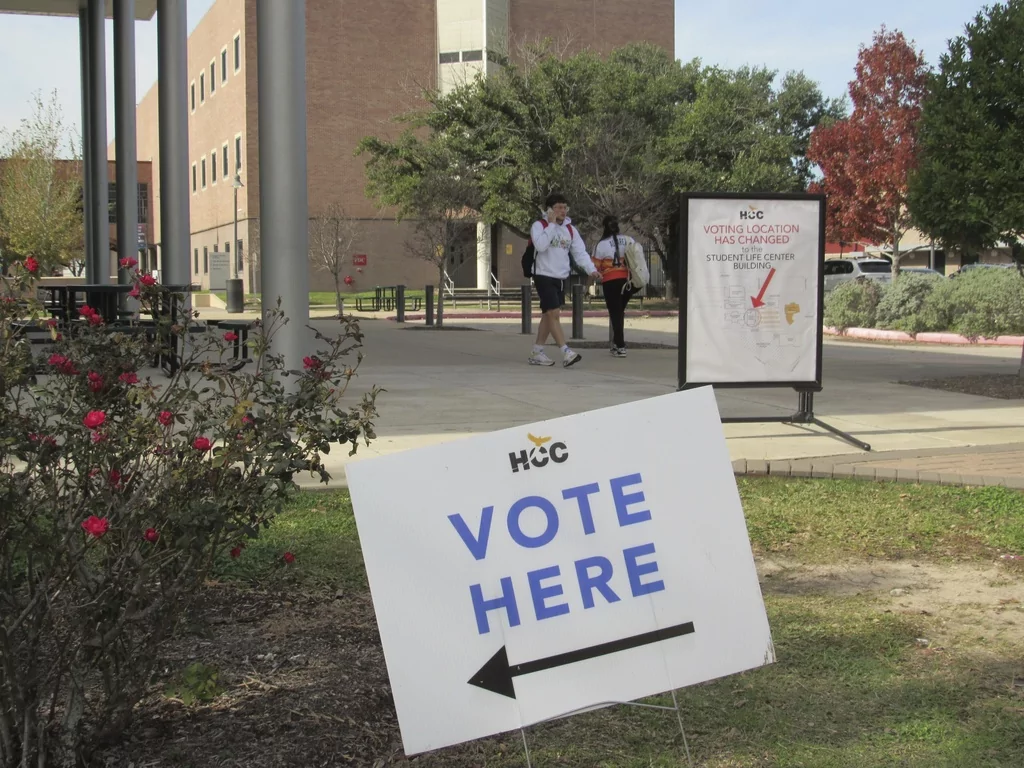

Voting disputes are traveling quickly through the court system in the final weeks of the election, and some cases could see resolutions that will have real-world consequences ahead of November.
Cases involving cleaning voter rolls and accepting ballots after Election Day could see resolutions before Nov. 5 and cause last-minute changes ahead of a presidential race that polls suggest is virtually tied.
In Alabama, a hearing on Tuesday is set to determine whether Secretary of State Wes Allen, an elected Republican, lawfully ordered election officials in his state to switch 3,251 people on Alabama’s voter rolls who could potentially be noncitizens to “inactive” status.
Allen issued that order within the National Voter Registration Act’s 90-day “quiet period,” prompting the Department of Justice to sue to try to stop him.
Attorneys argued on behalf of Allen in court filings that the secretary of state’s order came only after the federal government had declined to assist Allen with determining whether the registered voters, who possessed alien numbers, had become citizens. The attorneys also noted Allen’s office offered ample opportunity for the voters to change their registration status to “active” by submitting proper documents.
Left-leaning lawyer Joyce Vance, former U.S. attorney of Alabama, predicted during a forum this week that the court would rule in favor of the DOJ and order all of the registered voters on the state’s voter roll to remain active and able to participate in the coming election.
“DOJ has come in [with] a very slender, very surgically targeted challenge that I think will be effective in the courts here,” Vance said.
About 700 of the people who were switched to inactive responded to Alabama election officials by providing documentation confirming their citizenship, while 106 asked to be permanently removed from the voter roll, an indication that they were ineligible to vote, according to court documents.
While the outcome of the case could make or break a couple thousand Alabamians’ ability to vote next month, in a red state that former President Donald Trump won by hundreds of thousands of votes in 2020, it is unlikely to affect the presidential race outcome.
When asked if he thought any pending election-related cases carried significance, Derek Muller, a University of Notre Dame law professor who specializes in election litigation, said not unless a race comes down to the wire.
Open cases are “fairly marginal” right now and probably would not have “any impact of note,” Muller told the Washington Examiner, adding that “of course, all bets are off in a state decided by a few hundred votes.”
In Arizona, where the race between Trump and Vice President Kamala Harris is a toss-up, every legal decision can make a difference. Trump lost Arizona by 10,000 votes, or about 0.3%, in 2020.
Now, Republicans in that battleground state are closely watching Secretary of State Adrian Fontes, an elected Democrat, and how he is handling a newly unearthed discrepancy on Arizona’s voter rolls.
While early voting is already underway in Arizona, Fontes and America First Legal, a Republican-aligned group, are awaiting a court hearing, which is scheduled for Tuesday, that is set to determine if Fontes must release a list of at least 218,000 registered voters with unconfirmed citizenship to the group.
The discovery that their citizenship was unconfirmed came after an election official in the populous Maricopa County discovered a noncitizen on the voter rolls, leading to the discovery of nearly 100,000 and then another 118,000 potential noncitizens.
Arizona GOP Chairwoman Gina Swoboda recently told the Washington Examiner that she expected most of them to be citizens whom the state’s Department of Transportation simply does not have updated records for, and she lamented that removing so many likely citizens from the voter rolls out of caution was a non-option so close to Election Day because of the 90-day rule. Those voters would have to be allowed to vote on a full ballot in Arizona, she explained. Any noncitizen who voted would be recorded as having done so, a violation of federal law.
Still, America First Legal has insisted on obtaining the list of registered voters, arguing it is supposed to be public information and would help with transparency, providing assurance that noncitizens are not voting.
In Mississippi, a solid red state, the Republican National Committee is eagerly awaiting a ruling from the conservative 5th Circuit Court of Appeals, which heard oral arguments last month over whether the state’s acceptance of ballots received up to seven days after Election Day was legal.
CLICK HERE TO READ MORE FROM THE WASHINGTON EXAMINER
Mississippi is one of several states that accept mail-in ballots after the election so long as they are postmarked by Election Day.
If the 5th Circuit rules in Republicans’ favor, they could move quickly to seek an order from a lower court prohibiting Mississippi officials from counting post-Election Day ballots. While this ruling is unlikely to make a difference in Mississippi’s presidential race, legal experts expect the RNC to wield the decision in other jurisdictions where it could have a greater impact.







